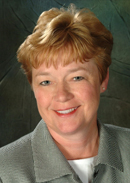
MU education researchers will receive nearly $2.3 million from the National Science Foundation over the next four years to study learning outcomes in mathematics of elementary students in relation to teaching expertise and classroom assignments.
The researchers will monitor the impact of using elementary teachers certified through a two-year study program. They will also monitor how the specialists are utilized, such as whether they teach all subjects to one class or teach multiple sections of mathematics to different classes.
The results will help officials determine how their elementary teaching staff can provide high-quality mathematics instruction, said Barbara Reys, Curators Professor and Lois Knowles Faculty Fellow in the College of Education.
“In the United States, most elementary teachers are generalists, unlike middle or high school teachers who focus on specific content areas,” Reys said. The teachers often lack expertise in mathematics.
But research has shown that mathematics learning for elementary students “improves when their teachers have mathematical knowledge and expertise,” Reys said.
In 2012, the Missouri State Board of Education approved the Elementary Mathematics Specialist (EMS) certificate, a program that recognizes 24 hours of graduate-level coursework and focuses on improving the mathematics content and teaching expertise of elementary teachers. In 2013, MU and four other Missouri institutions began to implement the program, which is one of only several nationwide. MU's EMS graduate certificate is designed for K-6 teachers working full time. The courses are scheduled over a 2-year cycle beginning in the fall semester.
Reys and a team of MU researchers, including Corey Webel, an assistant professor of mathematics education, will study teaching and student learning in multiple Missouri public schools. For the study, 40 teachers who have earned an EMS certificate will be assigned to teach two or more sections of mathematics. Forty other EMS-certified instructors will teach all subjects to their students. In another group, 40 non-EMS teachers will teach all subjects to their students. At the end of the school year, the researchers will compare students’ mathematics performance to gauge the impact of each instructional model.
Webel said the aim of the project is to advance a discussion about supporting improved teaching of mathematics at the elementary level.
“We know that having teachers who know mathematics and can use it to design and implement sound instruction corresponds to stronger student performance,” he said. “Exploring ways to provide more students with access to these teachers is important.”
The researchers are recruiting school districts and teachers to participate in the study, which will be implemented in schools during the 2015-16 and 2016-17 school years.
— Jesslyn Chew